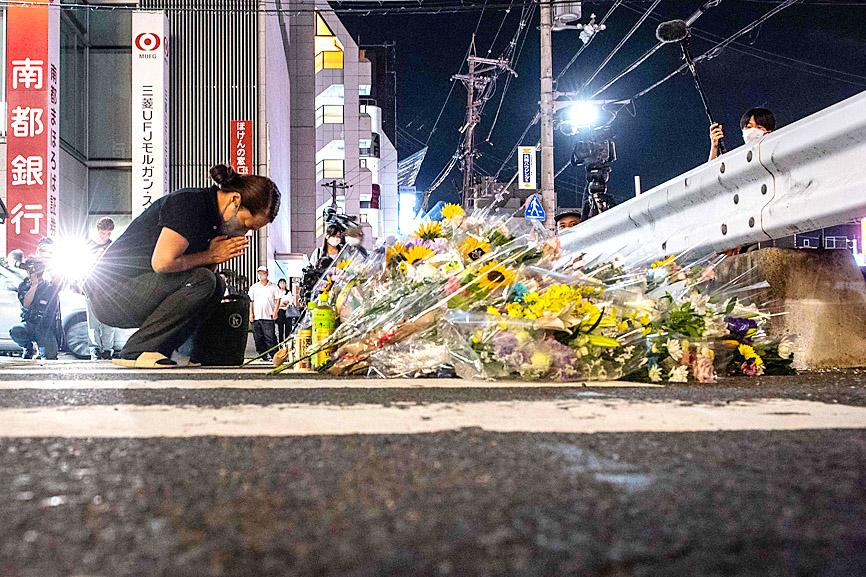Former Japanese prime minister Shinzo Abe was yesterday assassinated on a street in western Japan by a gunman who opened fire from behind as he delivered a campaign speech.
The 67-year-old Abe, who was Japan’s longest-serving leader when he resigned in 2020, collapsed bleeding and was airlifted to a nearby hospital in Nara, although he was not breathing and his heart had stopped.
He was later pronounced dead after receiving massive blood transfusions, officials said.
Nara Medical University emergency department director Hidetada Fukushima said Abe suffered major damage to his heart, along with two neck wounds that damaged an artery.
He never regained his vital signs, Fukushima said.
Police arrested the suspected gunman at the scene of the attack and identified him as Tetsuya Yamagami, 41, a former member of the Japanese navy.
Broadcaster NHK reported that Yamagami said he wanted to kill Abe because he had complaints about him unrelated to politics.
Dramatic video from NHK showed Abe standing and giving a speech outside a train station in Nara ahead of tomorrow’s parliamentary election. As he raised his fist to make a point, two gunshots rang out, and he collapsed holding his chest, his shirt smeared with blood as security guards ran toward him.
Guards leapt onto the gunman, who was face down on the pavement. A double-barreled device that appeared to be a handmade gun was seen on the ground.
Japanese Prime Minister Fumio Kishida and his Cabinet ministers hastily returned to Tokyo from campaign events around the country after the shooting, which he called “dastardly and barbaric.”
He pledged that the election, which chooses members for parliament’s less-powerful Japanese House of Councilors, would go on as planned.
“I use the harshest words to condemn” the act, Kishida said, struggling to control his emotions.
He said that the Japanese government planned to review the security situation, but added that Abe had the highest protection.
Even though he was out of office, Abe was still highly influential in the governing Liberal Democratic Party and headed its largest faction, Seiwakai.
Opposition leaders condemned the attack as a challenge to Japan’s democracy.
In Tokyo, people stopped on the street to grab extra editions of newspapers or watch TV coverage of the shooting.
When he resigned as prime minister, Abe said he had a recurrence of the ulcerative colitis he had had since he was a teenager.
He told reporters at the time that it was “gut-wrenching” to leave many of his goals unfinished.
He said he had failed to achieve a revision of Japan’s war-renouncing constitution, a goal that made him a divisive figure.
However, Abe said he was proud to have strengthened Japan’s security alliance with the US and shepherded the first visit by a serving US president to Hiroshima, one of two cities on which the US in World War II dropped an atomic bomb.
Serving as prime minister from 2006 to 2007 and from 2012 to 2020, Abe won six national elections and built a rock-solid grip on power, bolstering Japan’s role in the Indo-Pacific region. He also stepped up patriotic education at schools and raised Japan’s international profile.
Source: Taipei Times - 2022/07/09





















